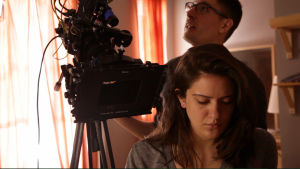by Andrew Einspruch
Filmmaker Andrew Einspruch recently attended the Australian International Documentary Conference and wrote a series of articles for the event, which he’s graciously allowed us to reprint here. These articles originally appeared in Screen Hub, the daily online newspaper for Australian film and television professionals.
You’d already know that formats are all over your TV screen. From Big Brotherto Who Wants to Be Millionaire to Go Back to Where You Came From, formats (shows with “a framework which contains several clearly described elements that are combined in a unique way”) are TV mainstays. What you might not know is that worldwide in 2009, formats generated production worth € 9.3 billion (that’s with a “b”), or $11.8 billion. And that amount would only have gone up since then.
Patty Geneste knows a thing or two about formats. Her company, Absolutely Independent, has won several international awards for the formats it represents, and she sits on the board of the Format Recognition and Protection Association (FRAPA). So she brought lots of expertise to her AIDC session on dealmaking.
The first formats were gameshows, like Wheel of Fortune and Jeopardy. Next came light entertainment, like You Bet or Honeymoon Quiz. Today, formats cover a wide range of styles, from factual entertainment to scripted or constructed reality, from observational documentary to comedy drama. Shows that are formats are often not obviously so. The drama Homeland, for example, was an Israeli format sold into the US.



